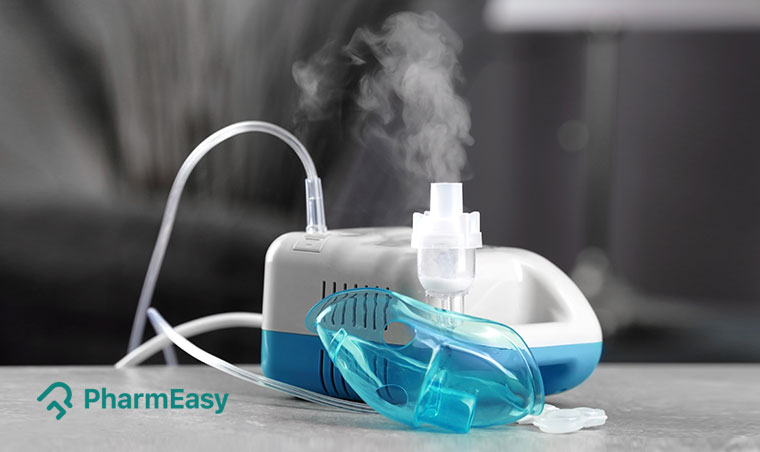Benefits of Nebulizer for Cough
In this article, we will discuss the benefits of using a nebulizer for treating cough. Coughing is a common symptom that can be caused by various respiratory conditions, such as asthma, bronchitis, or allergies. While there are several treatment options available, nebulizers have proven to be highly effective in providing relief and managing cough symptoms. Let’s explore the advantages of using a nebulizer for cough.
Efficient Medication Delivery
A nebulizer is a medical device that converts liquid medication into a fine mist, allowing it to be inhaled directly into the lungs. This method of delivery ensures that the medication reaches the affected areas, providing quick and targeted relief. Compared to oral medications or inhalers, which may take longer to take effect, nebulizers offer a more efficient way of delivering medication for cough treatment.
Deep Penetration into the Airways
One of the key benefits of using a nebulizer for cough is its ability to deliver medication deep into the airways. The fine mist generated by the nebulizer can reach the bronchial tubes and alveoli, which are the small air sacs in the lungs. This deep penetration allows the medication to directly target the inflamed or constricted airways, providing effective relief from cough symptoms.
Suitable for All Ages
Nebulizers are suitable for people of all ages, from infants to the elderly. This makes them an excellent option for treating cough in children who may have difficulty using inhalers or swallowing oral medications. Nebulizers are also commonly used in hospitals and clinics to administer medication to patients of all age groups, ensuring that everyone can benefit from their therapeutic effects.
Easy to Use
Using a nebulizer for cough treatment is relatively simple. The device typically consists of a compressor, a medication cup, and a mask or mouthpiece. The liquid medication is poured into the cup, and the nebulizer converts it into a mist that can be inhaled. The mask or mouthpiece is then placed over the nose and mouth to facilitate inhalation. This user-friendly design makes nebulizers an accessible option for individuals who may have difficulty using other forms of medication delivery.
Versatility in Medication
Nebulizers can be used with a variety of medications, including bronchodilators, corticosteroids, and antibiotics. This versatility allows healthcare providers to tailor the treatment to the specific needs of each patient. Whether the cough is caused by inflammation, infection, or constriction of the airways, a nebulizer can be used to deliver the appropriate medication for effective symptom relief.
Enhanced Hydration of Airways
When using a nebulizer, the fine mist produced not only delivers medication but also helps to hydrate the airways. This can be particularly beneficial for individuals with dry cough or those living in dry climates. The moisture from the nebulizer can soothe irritated airways, reducing coughing and promoting comfort.
Portable Options Available
Advances in technology have led to the development of portable nebulizers, allowing individuals to carry their medication and treatment wherever they go. These compact devices are battery-operated or USB-rechargeable, making them convenient for travel or use outside of the home. Portable nebulizers ensure that individuals can continue their cough treatment without interruption, improving their quality of life.

Using a nebulizer for cough treatment offers several benefits, including efficient medication delivery, deep penetration into the airways, suitability for all ages, ease of use, versatility in medication, enhanced hydration of the airways, and the availability of portable options. These advantages make nebulizers an effective and convenient choice for managing cough symptoms caused by various respiratory conditions. If you are experiencing a persistent cough, consult with your healthcare provider to determine if using a nebulizer is a suitable treatment option for you.
Frequently Asked Questions about the Benefits of Nebulizer for Cough
1. What is a nebulizer?
A nebulizer is a medical device that converts liquid medication into a fine mist that can be inhaled directly into the lungs.
2. How does a nebulizer help with cough?
A nebulizer helps with cough by delivering medication directly to the airways, providing quick relief and reducing inflammation in the lungs.
3. What are the benefits of using a nebulizer for cough?
The benefits of using a nebulizer for cough include faster and more effective delivery of medication to the lungs, reduced coughing and wheezing, and improved breathing.
4. Can a nebulizer be used for both children and adults?
Yes, nebulizers can be used by both children and adults. However, the medication and dosage may vary depending on the individual’s age and condition.
5. Are there any side effects of using a nebulizer for cough?
Side effects of using a nebulizer for cough are generally minimal. However, some individuals may experience mild throat irritation or increased heart rate.
6. How often should I use a nebulizer for a cough?
The frequency of nebulizer use for cough depends on the severity of the cough and the prescribed medication. Your healthcare provider will provide specific instructions on the dosage and frequency.
7. Can a nebulizer be used for other respiratory conditions besides cough?
Yes, nebulizers can be used for various respiratory conditions such as asthma, bronchitis, and COPD (Chronic Obstructive Pulmonary Disease).
8. Is a prescription required to obtain a nebulizer?
In most cases, a prescription is required to obtain a nebulizer. It is important to consult with a healthcare provider to determine the appropriate treatment plan.
9. How long does a typical nebulizer treatment for cough last?
A typical nebulizer treatment for cough lasts around 5 to 15 minutes, depending on the prescribed medication.
10. Can I use my nebulizer at home?
Yes, nebulizers are commonly used at home for self-administration of medication. It is important to follow the instructions provided by your healthcare provider and maintain proper hygiene of the nebulizer equipment.




